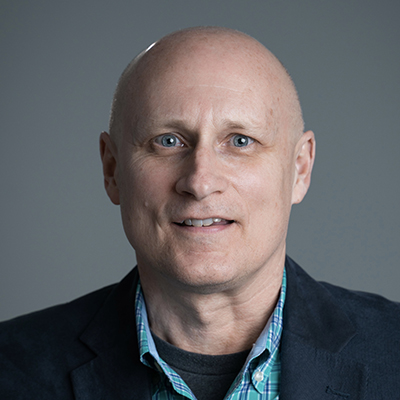
Here are three reminders to help pastors balance how to care for others with how to cast their cares on the Lord instead of carrying the weight themselves.
By Chris Maxwell
A friend and former pastor texted me his description of today’s climate surrounding church leaders: “It’s like there are forest fires all around, and we’re just staring at the sky in numbness.”
Rick sent that text and included more detailed confessions on social media. Friends knew some of his what, but they didn’t fully know his why. Rick was still learning that himself.
His second lead pastoral position had been an exciting time of church growth and outreach. The congregation was budding in the small-town setting, so they added multiple services. Vehicles parked in the grass, and the place was covered with anticipation.
But the pressure was greater than the excitement. The expectations, the sincere hopes to bring change, the goals, and the push from himself and others left him carrying a heavy burden.
What caused the deepest weight while Rick served as a lead pastor? “There are two,” Rick said. “The pressure of withheld assumptions and the pressure to succeed.”
“No pastor wants to be a failure in the mission to serve,” Rick said about the heaviness of the pressure to succeed. “The pressure comes at us from many places: other leaders (internally and externally), comparison with other churches, structures that only celebrate self-defined metrics, and the idea that church health is indicated by everything being ‘up and to the right.’ All of this works together to create a vicious cycle that moves us away from calling and into a place of performance-based service.”
His story is so familiar. In fact, most pastors point to stress as a mental challenge they face in ministry (63%).
After Rick left his role as pastor, the church dwindled in numbers and has since closed its doors. How’s Rick coping with that reality? What’s he doing?
“Quite simply,” he said, “stepping away for a season of sabbatical and counsel has done me the most good. This has allowed me the opportunity for a lot of introspection and reflection. And I’ve purposefully placed myself into other worship settings away from what I left so I wouldn’t be tempted to compare, criticize, or critique.”
But was it necessary to go from a chapter of church growth and excitement to a chapter of church closure and career change? What could he have done differently to deal with that pressure earlier?
“While COVID was an accelerator to the decline in church health overall, I saw the signs before then,” Rick said. “There was volunteer burnout, unhealthy comparisons, and conversations at a leadership level that were red flags. At the same time, there was an awakening within me that was causing me to begin to focus on my own soul’s health and the calling on my life. With hindsight as my friend now, I should’ve paid closer attention to what I saw happening.”
"I fear many pastors have rushed back to ‘what was’ without considering ‘what has’—that is, what has happened to them." — a former pastor Click To TweetOther pastors hear Rick’s story and read the latest stats. But how are they facing their own struggles? How are people handling trauma, loss, and uncertainty? How should leaders reconsider ministry as communities are changing? And how can clergy become better at caring for people but not carrying the weight of ministry?
“I’ve had multiple pastors reach out to me who say similar things. They’re tired, lonely, weary, uncertain, and wonder how much further they can continue to serve,” Rick said. “I fear many pastors have rushed back to ‘what was’ without considering ‘what has’—that is, what has happened to them. It begins with beginning to care for our own selves. Many pastors are struggling with addiction or carrying unhealthy coping mechanisms. Until pastors get healthy—and that may mean stepping away for a season—there’s going to continue to be the weight of ministry that is always present. Finally, I would say, there’s a ministry of finishing that is biblical and needed. There’s a difference between quitting and finishing—my counselor helped me see this with clarity.”
Licensed psychologist Dr. Beverly Oxley suggests healthy ways to care for people without carrying the load of the brokenness of people.
“The Hollies produced a song that often rings in my ears when I’m doing therapy with clients: ‘He ain’t heavy; he’s my brother,’” Oxley said. “When a client is downloading their griefs and woes upon me in my counseling office, I must choose to not hold in myself the cares of the heaviness. I care, but I do not carry. Jesus is the one who carries the wounds and sorrows. I am simply the mediator—the one in the flesh listening, responding, even crying with them. I’m not strong enough to carry my brother, but He is. Still, I choose to care.”
Here are three reminders to help ministers find that equilibrium of caring for people while casting their cares on the Lord instead of carrying the weight themselves:
Care for other people
Yes, people cause hurts. Yes, like us, other people are weak. But caring for people is what makes us different. Caring for people is what really matters. Whatever our unique giftings and talents, I hope we all have this in common: I hope we care—with true, sincere, deep care. I hope we lead with servant hearts and sincere motives. Remember how much Jesus cares for you, and choose to love other people with His love.
Remember how much Jesus cares for you, and choose to love other people with His love. — @CMaxMan Click To TweetCare deeply but refuse to let the conditions of others control you
The problem? We often carry too much of the heaviness of others into our inner lives and into our homes. Deep hurts begin to control us—our moods, our words, our decisions. We can become controlling and angry. We can become distant and reluctant.But we can love and listen while finding ways to not carry that care with us wherever we go. Jesus cared enough to die, but He also frequently left the crowds to rest with the Father.
Let someone care for you
Don’t only be a giver of care. Be a receiver of care. Find the right person and the right people to care for you. It must be intentional, though God often brings people into our lives in surprising ways when we need it. It must be sincere, though God can slowly work us into a place of better trust as we properly deal with our own hurts.
Don’t only be a giver of care. Be a receiver of care. Find the right person and the right people to care for you. — @CMaxMan Click To TweetNo, pastors shouldn’t be addicted to their roles as rescuers. The goal is to cast those cares on the true Caregiver. Though there is danger in rescue addiction, choosing to pause and breathe and listen to guidance from others will help ministers find a better balance of caring but not carrying.
Remember: Pause today. Breathe today. Rest today.
Care deeply. Carry lightly. Let there be peace in the caring.

Chris Maxwell
Chris Maxwell served 19 years as lead pastor in Orlando, Florida, after five years of youth ministry. He’s now in his 16th year as Campus Pastor and Director of Spiritual Life at Emmanuel College.
Portions of this article are adapted from Chris Maxwell’s book Equilibrium: 31 Ways to Stay Balanced on Life’s Uneven Surfaces.







